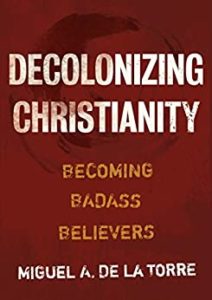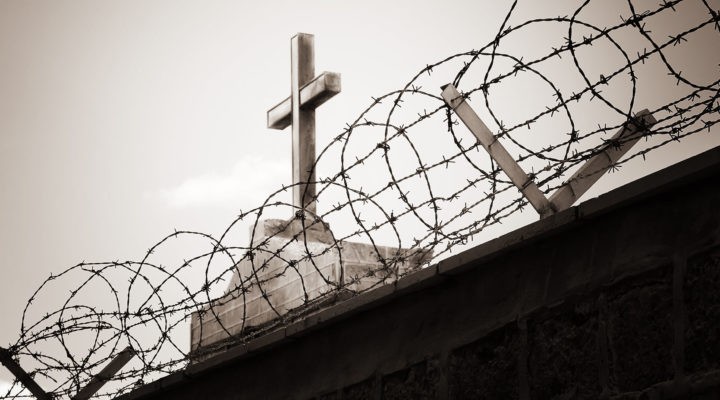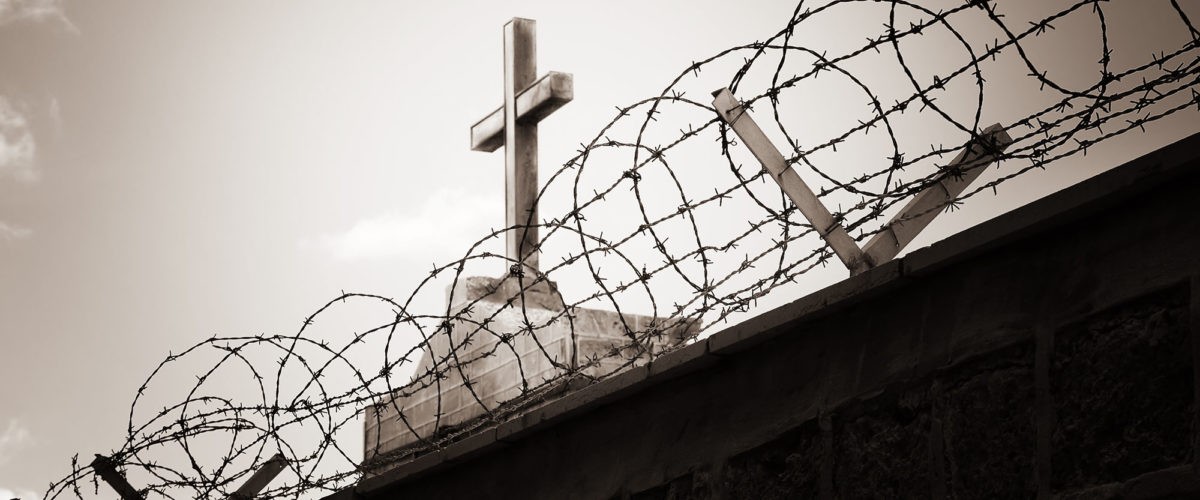Miguel De La Torre is no stranger to hate mail as the author of dozens of books, articles and blog posts challenging the theological foundations and racial assumptions of white political and religious power.
“It’s ranged from being called the left hand of Satan to churches contacting my institution to get me fired — and even death threats,” said De La Torre, author and professor of social ethics and Latinx studies at Iliff School of Theology in Denver.

Miguel De La Torre
He received a big dose of that animosity after publication of a 2017 Baptist News Global column in which he declared that white evangelicals had killed Christianity by rejecting Christ, embracing hatred and marginalizing people of color. He expanded on the theme in his 2018 book, Burying White Privilege. (The original BNG column has been read nearly 700,000 times.)
Now in a new volume, Decolonizing Christianity: Becoming Badass Believers, De La Torre moves from describing the challenge to offering suggestions on how to recognize and embrace the spiritually, culturally and politically radical message of Jesus Christ.
And that is the definition of a “badass believer,” he explained. “It is a believer who follows the example of a Jesus who makes a whip, enters the temple and chases out all the bankers.”
Nowadays that includes declaring that Black lives matter and that Hispanic children should not be separated from loved ones and locked in cages at the U.S.-Mexico border, he said. “It is a way of being that recognizes we cannot go to the police department to get a permit to protest the police department’s brutality of people of color. It is a way that realizes that laws and theologies are designed to keep a certain group of people domesticated.”
What the book is not, he added, is an attempt to convince adherents of the dominant culture to identify, admit and renounce racism. He believes that’s their responsibility.
“You don’t demand that an abused spouse provide solutions for their abuser just as you don’t ask those being abused by white nationalist Christianity to come up with solutions to stop their abuse,” he said. “I wrote this book for people of color who are struggling with these issues and as a way for us to talk among ourselves about how we decolonize our minds.”
“You don’t demand that an abused spouse provide solutions for their abuser just as you don’t ask those being abused by white nationalist Christianity to come up with solutions to stop their abuse.”
Decolonizing the mind is a process that begins with a rejection of the white God, white Jesus and a hermeneutic that dehumanizes and dominates people of color, he said. “I’m talking about something that is centuries old. In the U.S., its manifestation has been designed to silence and marginalize communities of color. So why should we embrace a worldview that is not only detrimental but death dealing to our communities?”
One place to start is with liberation movements that have arisen to push back against oppression, he contends. “There is the whole Black theology movement that is an attempt to move away from white Christianity. Feminist theology and the Queer and Latinx movements are part of this resistance. This is nothing new.”
Becoming emersed in the literature and actions of these movements helps distance people of color from the very worldview that oppresses them, De La Torre said. “It’s a way of examining white theology to show that it is pregnant with power structures designed to be detrimental to non-white Eurocentric individuals.”
Another way to resist is simply to follow Christ’s example in the Gospels by feeding the hungry, giving water to the thirsty, clothing the naked, welcoming the alien and comforting the imprisoned, he said. “White national Christianity does not want to do these things.”
Also necessary is a posture that avoids exercising privilege over others, he continyed. “For example, as a male I have male privilege over against females. If I am going to be a badass Christian, it means I don’t speak for women and paternalistically try to solve their problems. It means I focus on dismantling the very structures that give me privilege as a male.”
“If I am going to be a badass Christian, it means I don’t speak for women and paternalistically try to solve their problems.”
Even those who benefit from the theology of oppression can find in his book ways to struggle against its oppression, De La Torre said. They can make a start by exploring counter-cultural theologies and seeking ways to serve Christ by serving the disenfranchised.
“They, too, must reject this white Christianity and learn to bow their knee to the Black Jesus, the Latino Jesus, the feminist Jesus and the Queer Jesus. Only then will they move away from what (Black theologian) James Cone called satanic white Christianity,” he said. “Why is it satanic? Because any Christianity that has nothing to say about children in cages or Black lives not mattering is not from the One who gives life.”
 And it is not only whites who espouse white Christian nationalism, De La Torre added. “When I say white, I am not talking about skin pigmentation. I am talking about a worldview that embraces white supremacy. That includes many whites, but also a lot of brown and black bodies that also are white in their worldview.”
And it is not only whites who espouse white Christian nationalism, De La Torre added. “When I say white, I am not talking about skin pigmentation. I am talking about a worldview that embraces white supremacy. That includes many whites, but also a lot of brown and black bodies that also are white in their worldview.”
Examples, De La Torre said, include U.S. Supreme Court Justice Clarence Thomas, whose legal opinions have routinely supported the dominant culture, and Hispanics who supported Donald Trump.
These and others helped inspire the writing of Decolonizing Christianity, he said. “It was written for those in my community who have embraced a political system that is literally killing my people.”
As for Trump, the former president was as much a product of white supremacist Christianity as he was its champion for bringing it into the open, De La Torre said. “Now it’s safe to go up to a Chinese person and say, ‘You are the virus.’ Now we are seeing outright voter suppression efforts without having to call them something else.”
The empowerment of the white supremacist Christianity during Trump’s presidency also has emboldened De La Torre’s critics, he acknowledged. “It’s gotten worse because now there’s permission to troll and to threaten.”


